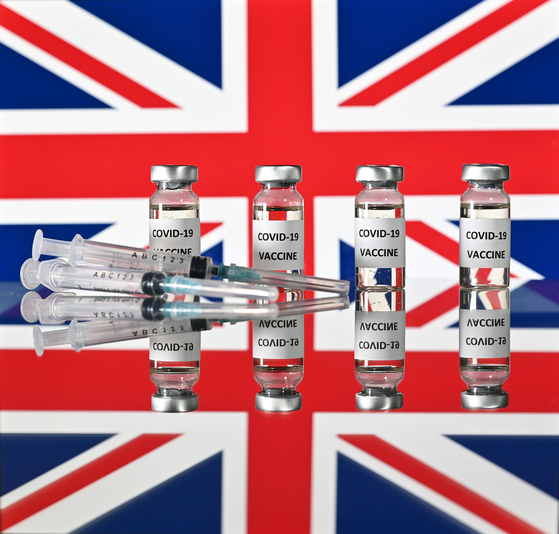![A COVID-19 vaccine developed jointly by AstraZeneca and Oxford University, a multinational pharmaceutical company based in the UK. [AFP=연합뉴스]](https://i0.wp.com/pds.joins.com/news/component/htmlphoto_mmdata/202101/29/50de7653-c9ef-4687-b194-65a11fc1abc1.jpg?w=560&ssl=1)
A COVID-19 vaccine developed jointly by AstraZeneca and Oxford University, a multinational pharmaceutical company based in the UK. [AFP=연합뉴스]
The vaccine jointly developed by AstraZeneca and Oxford University in England raised expectations as a’game changer’ that will reverse the COVID-19 phase. The advantages of being cheaper and easier distribution than competitors Pfizer, modder, or vaccine are highlighted.
WSJ “Decreased production yield, not informed in advance”
EU, Belgian factory’raid’ to check
Germany “must only be vaccinated under 65” recommendation
But when I open the lid, noise comes out every day. Compared to the two competitors, approval for use is delayed, as well as production disruption, controversy over efficacy, and’trust’ with regulatory authorities.
Recently, AstraZeneca was notified by one side that it was unable to meet the amount of vaccine it had decided to provide to the European Union, and the EU countries drew a backlash. The cause was a problem at a production facility in a Belgian factory.
On the 28th (local time), the Wall Street Journal (WSJ) reported that it was revealed that the pharmaceutical companies did not inform EU countries in advance even though they were aware of this situation early. In December, it was recognized that the production yield of vaccine raw materials was falling, and the situation worsened in January, but it was notified like the’bomb declaration’ only when the supply deadline was tight.
EU suspects Astra raids Belgian factory
![AstraZeneca office in Brussels, Belgium. [로이터=연합뉴스]](https://i0.wp.com/pds.joins.com/news/component/htmlphoto_mmdata/202101/29/010caf0f-5a11-4d7f-9e90-5753cef002af.jpg?w=560&ssl=1)
AstraZeneca office in Brussels, Belgium. [로이터=연합뉴스]
Then, in the EU, suspicion was raised that AstraZeneca had reduced EU supply in order to first supply supplies to the UK or other countries. In fact, on the 27th, the EU Commission’raided’ a Belgian factory to check the cause of the supply shortage.
According to CNN, Belgian Health Minister Frank Vandenbruke said in a statement to a spokesman, “We conducted an on-site investigation to determine if the delay in delivery of the vaccine was a production problem in Belgium.” The results of the investigation will be released in a report soon.
According to WSJ, the problem of yield reduction also appeared in manufacturing plants in the United States and Australia. An Australian manufacturer said, “Since starting production in November of last year, production has been lower than expected, but the problem has been fixed and is in line with the original plan.” Yield reduction problems occurred around the same time in the EU, the United States, and Australia, but the cause of it has not yet been disclosed.
The European Union countries, faced with a thunderbolt, responded. The Italian government is considering filing a lawsuit for breach of the contract, and Germany has insisted that the export of vaccines produced in the EU should be prevented until AstraZeneca reaches its promised volume.
U.S. EU, unrecoverable doubts
![German Minister of Health Jens Schfan. Minister Sfan said on the 25th (local time) that the export of vaccines produced in Europe should be regulated. EPA=Yonhap News]](https://i0.wp.com/pds.joins.com/news/component/htmlphoto_mmdata/202101/29/c610fc87-a25b-495d-bafb-1146321c1309.jpg?w=560&ssl=1)
German Minister of Health Jens Schfan. Minister Sfan said on the 25th (local time) that the export of vaccines produced in Europe should be regulated. EPA=Yonhap News]
Apart from this issue, there is still controversy over the efficacy. With the approval of the AstraZeneca vaccine by the European Medicines Agency (EMA) imminent, the immunization committee under the Robert Koch Institute (RKI), a German public health agency, issued a recommendation on the 28th (local time) to inoculate the vaccine only between the ages of 18 and 64 years old. This is because the number of clinical trial participants over 65 years of age makes it difficult to confirm efficacy and safety.
EMA is likely to follow suit. On the 26th of last month, EMA Commissioner Emma Cook said, “There is not enough data about whether the AstraZeneca vaccine is effective for the elderly,” he said. “There may be approvals for use focused on specific age groups.”
The US has put the approval schedule behind. The U.S. Food and Drug Administration (FDA) requested additional clinical trials, saying AstraZeneca did not properly inform about what happened in the vaccine development process and found errors in the clinical trial process.
As this controversy arose, British Prime Minister Boris Johnson, who is a’parent’, refuted on the 27th, saying, “Vaccines are effective for all ages.”
![27 (local time) British Prime Minister Boris Johnson is holding a press conference on Corona 19.[로이터=연합뉴스]](https://i0.wp.com/pds.joins.com/news/component/htmlphoto_mmdata/202101/29/d6af2538-33b2-4999-b323-b62aa8414c9d.jpg?w=560&ssl=1)
27 (local time) British Prime Minister Boris Johnson is holding a press conference on Corona 19.[로이터=연합뉴스]
Reporter Jeong Eun-hye [email protected]
